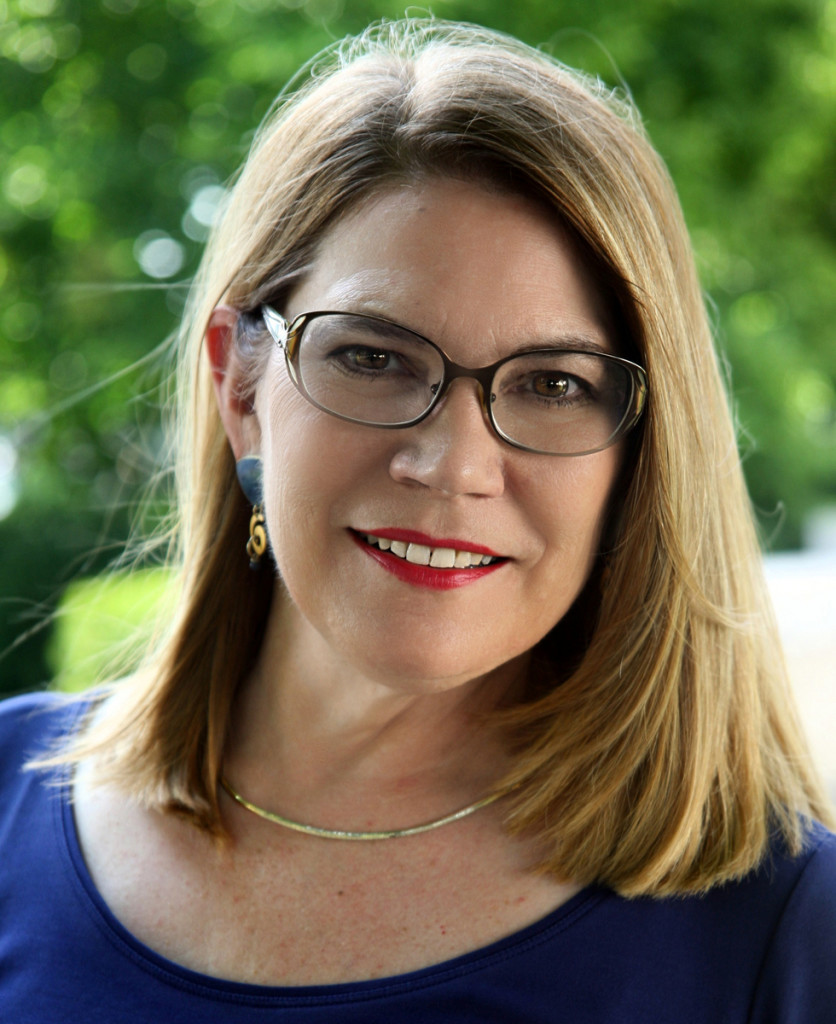Philadelphia has long been recognized for its rich and diverse arts and cultural offerings. There is so much our city has to offer tourists and locals alike: From the prestigious theaters on the Avenue of the Arts, to the world-class cultural institutions on the Parkway; operas and symphonies, ballet and contemporary dance, story slams, cabarets, public library programming, historic sites and more. The Greater Philadelphia Cultural Alliance is fully dedicated to the vitality of this sector, supporting its economic growth and preserving diverse cultural activities to empower and unite our local community. 2015 will be an exciting year for the GPCA, as newly appointed President, Maud Lyon, settled into her position in January. We had the opportunity to ask Maud about her impressive background and plans to helm Philadelphia’s $3.3 billion arts and culture industry.
PPRG: Tell us a little bit about yourself:  where did you grow up and go to school? Have you always been involved in the arts?
where did you grow up and go to school? Have you always been involved in the arts?
Maud Lyon: I grew up in Ithaca, NY, the daughter of a Cornell University professor. My BA is in history from Cornell, and I have an MA in Museum Administration from the Cooperstown Graduate Program, the nation’s oldest history museum program. My career has taken me to Iowa Living History Farms, working as a curator at the Louisiana State Museum in New Orleans, and to Detroit to lead the Detroit Historical Museum and organize the City of Detroit’s 300th birthday celebration in 2001. After that, I worked for the Detroit Symphony Orchestra and, with others, founded CultureSource, an arts support organization similar to the Greater Philadelphia Cultural Alliance. I’ve worked with cultural organizations of all kinds: music, theatre, museums, park conservancies, community arts organizations and more. I love the passion of people who work in arts and culture, and how dedicated they are to their mission and to their communities
PPRG: What was the most challenging endeavor during your initiatives in furthering Detroit’s arts and culture industry?
Maud Lyon: From 2010-2014 our Strategic Alliances Initiative explored ways that diverse organizations can work together to increase capacity and collaborate to achieve their goals more efficiently. We had alliances in music education, theatre, financial management and volunteer recruitment, and a shared staffing effort for small performing arts organizations. We learned a lot about what it takes for organizations to form lasting partnerships, and also about how challenging it is to reduce costs in an industry that is already so heavily leveraged with creative in-kind and low-cost operations. Strategic Alliances also led to other initiatives, most notably IXITI.com, a marketing website that serves more than 270 arts providers today.
PPRG: What influenced your decision to step down from CultureSource and relocate to Philadelphia?
Maud Lyon: The Greater Philadelphia Cultural Alliance was our model when we founded CultureSource – I have admired the research, advocacy, and marketing programs of the Alliance for many years. The Alliance is the national leader in this work, and Philadelphia is an incredibly rich cultural community. Coming here to have the privilege of leading the Alliance was irresistible!
PPRG: Do you notice any major differences between Detroit and Philadelphia’s arts and culture scenes?
Maud Lyon: Detroit right now is in a magic moment as a community. The city is literally re-making its economy, with huge changes in the business community, young entrepreneurial efforts, high-tech neighborhoods that are transforming with new residents, and more collaborations between the suburbs and the city. Artists have flocked to Detroit because of the low cost of housing and the freedom to invent and to experiment. The lines between non-profit and for-profit organizations are blurry, with lots of unincorporated or emerging arts efforts. People are more concerned with doing cool things than they are with how things are structured.
I’ve only just started in Philadelphia and have a lot to learn, but a few things stand out to me. Here the cultural community is more mature, with many more organizations. The cultural community is also much more concentrated in the city, and especially along the Avenue of the Arts and Center City. Of course, here there is a major tourism industry, while in Detroit the arts and culture audience is overwhelmingly local. I love the depth of culture here. In addition to outstanding performing arts and visual arts, there are organizations championing history, science, horticulture, parks and arts education. I am also looking forward to exploring the many grassroots organizations that are small yet doing amazing, innovative work.
PPRG: Do you have any role models who inspire you to play an active role in community development?
Maud Lyon: I deeply admire the work of arts education leaders, because their work changes the lives of students and it also makes the community stronger and more united. I am also inspired by leaders who are changing the way arts and culture does business, engaging with the residents and visitors in new ways. My heroes from Detroit include Terry Blackhawk, founder of the InsideOut Literary Arts Project, which places poets in residencies in Detroit Public Schools; Rick Sperling, founder of Mosaic Youth Theatre; and Maury Okun, of Detroit Chamber Winds and Strings, which co-manages a dance company and a classical music festival with a shared staffing model. In larger organizations, my heroes are Anne Parsons, visionary President of the Detroit Symphony Orchestra; and the three-person team that has led the Detroit Institute of Arts through a series of major challenges, Executive Director Graham Beal, COO Annmarie Erickson, and their dedicated board chair, Gene Gargaro. Both the DSO and the DIA have reached out to the community in a variety of ways, and the result is dramatically increasing the community sense of ownership of these organizations. They are anchors of Midtown Detroit, but more than that, anchors of renewed regional pride and identity.
PPRG: What projects or initiatives do you plan to focus on in your first year in Philly?
Maud Lyon: The key goal is to explore what will help arts and culture to thrive, and to serve Greater Philadelphia well. That will take many forms. To begin, we are taking a fresh look at all of our Alliance programs, and convening many groups to listen and learn about the needs of different disciplines, types and sizes of organizations. We’re also listening to the business and civic sectors, to understand the environment in which arts and culture operates and the needs of the larger community. Greater Philadelphia is changing, and we need to focus our work at the Alliance upon how to connect those opportunities to the incredible arts and culture assets that are here.
PPRG: How would you like to impact the city of Philadelphia and our arts and culture community during your time as President and CEO?
Maud Lyon: Within our sector, success will include increased collaboration and more unity in the way that arts and culture providers work together to meet community needs and to develop audiences. In the community, I want to nurture sources of support by finding better ways to demonstrate the value of arts and culture, and by understanding the needs of patrons and funders. The Greater Philadelphia Cultural Alliance works on a level that individual organizations cannot. We connect, convene, and enable both the organizations/individuals that make arts and culture happen, and the powerful leaders of the community who see arts and culture as a path to larger goals. The Alliance is a force for innovation and a key asset for our city and the region.
Best of luck to Maud as she celebrates her first month as a leader in Philadelphia! The Philadelphia Cultural Alliance is the organization behind popular programs and resources available to the public, including Funsavers, Phillyfunguide, STAMP, PhillySpaceFinder and GroundSwell. Get involved with them on Twitter and Facebook!



